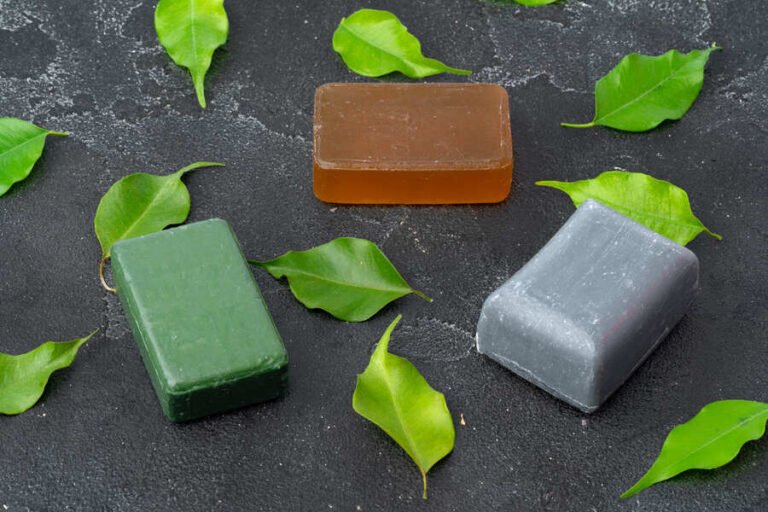Ever wondered what happens when you leave conditioner in your hair overnight? It may seem like a convenient way to nourish your locks, but is it actually beneficial?
In this article, we'll explore the effects of leaving conditioner in your hair for an extended period of time. While it's not recommended, there are alternative methods like using leave-in conditioner or diluting regular conditioner.
However, be cautious as persistent use may lead to issues like product buildup, scalp irritation, and flat hair.
Let's dive in and discover the truth!
Key Takeaways
- Leaving regular rinse-out conditioner in your hair overnight is not recommended.
- Use a leave-in conditioner product if you want to try overnight conditioning.
- Persisting in leaving conditioner in your hair overnight may adversely affect your strands.
- Issues that may arise from leaving conditioner in your hair overnight include hygral fatigue, product buildup, scalp irritation, and flat and limp hair.
The Effects of Leaving Conditioner in Your Hair Overnight
Leaving regular rinse-out conditioner in your hair overnight can result in harmful effects on your locks. While overnight conditioning may seem like a convenient way to nourish your hair, it can actually lead to issues such as hygral fatigue, product buildup, scalp irritation, and flat and limp hair.
Instead, consider using alternative methods for deep conditioning. One option is to use a leave-in conditioner product specifically designed for overnight use. Another method is diluting regular conditioner with water and applying it only to the ends of your hair. However, this method isn't suitable for regular use and is only recommended for extremely dry, coarse hair.
It's important to be aware of the potential risks associated with leaving conditioner in your hair overnight and to explore other deep conditioning options that provide the benefits you desire without the potential harm.
Potential Harmful Effects of Overnight Conditioning
Your hair's health may be compromised by leaving conditioner in overnight. While overnight conditioning for damaged hair may seem like a convenient solution, it can have potential harmful effects.
One of the key benefits of leave-in conditioner is that it's specifically formulated to be lightweight and non-greasy, allowing it to be left in the hair without causing damage. Regular rinse-out conditioners, on the other hand, aren't designed for overnight use and can lead to issues such as hygral fatigue, product buildup, scalp irritation, and flat and limp hair.
It's important to understand that leaving regular conditioner in your hair overnight isn't recommended and may have negative consequences for your hair's overall health and appearance. To properly care for your hair, it's best to follow the instructions provided by the specific leave-in conditioner you choose.
Using Leave-in Conditioner for Overnight Hydration
If you want to deeply hydrate your hair overnight, consider using a leave-in conditioner. Leave-in conditioners have a lighter formula that allows them to stay in your hair until the next wash, providing continuous hydration.
The benefits of using a leave-in conditioner overnight are numerous. Firstly, it helps to replenish lost moisture in your hair, leaving it soft, smooth, and manageable. Additionally, it can help to detangle your hair, making styling easier the next day.
To maximize the effectiveness of leave-in conditioner, start by applying it to damp hair, focusing on the ends and avoiding the roots to prevent weighing down your hair. Comb through your hair to distribute the product evenly, and then let your hair air dry or use a diffuser.
In the morning, you'll wake up to hydrated and nourished hair.
Diluting Regular Conditioner for Dry, Coarse Hair
To achieve better results with regular conditioner for your dry, coarse hair, try diluting it with water and applying it only to the ends.
Diluting your conditioner can provide several benefits for your hair. Firstly, it allows for better absorption of the product, as the diluted consistency ensures that it can penetrate the hair shaft more effectively. This helps to moisturize and nourish your hair, leaving it softer and more manageable.
Additionally, diluting your conditioner can prevent product buildup, which can weigh down your hair and make it look flat and lifeless. It also allows you to extend the use of your conditioner, as you can use less product each time.
However, it's important to note that dilution shouldn't be used as a substitute for regular deep conditioning treatments. It's always beneficial to explore alternative overnight treatments specifically designed for dry, coarse hair to ensure that you're providing your hair with the necessary hydration and nourishment.
Adverse Effects of Persisting in Leaving Conditioner Overnight
Continuing to leave conditioner in your hair overnight can lead to various adverse effects. It's important to be aware of the potential consequences and consider alternatives to overnight conditioning.
Here are five adverse effects that may arise from persisting in leaving conditioner in your hair overnight:
- Hygral Fatigue: Leaving conditioner in your hair for an extended period can cause hygral fatigue, which is when the hair shaft swells and contracts excessively due to water absorption and loss. This can weaken the hair and make it more prone to breakage.
- Product Buildup: Leaving conditioner in your hair overnight can result in product buildup, as the excess conditioner may not be fully absorbed or rinsed out. This can leave your hair feeling heavy, greasy, and weighed down.
- Scalp Irritation: Overnight conditioning can also lead to scalp irritation, especially if the conditioner contains ingredients that may be irritating to the skin. This can cause itching, redness, and discomfort.
- Flat and Limp Hair: Leaving conditioner in your hair overnight can result in flat and limp hair, as the excess product can weigh down the strands and make them appear lifeless.
- Ineffective Moisturization: While conditioners are designed to moisturize the hair, leaving them in overnight may not provide optimal results. The ingredients in leave-in conditioners are specifically formulated to provide long-lasting hydration and nourishment, making them a better alternative for overnight use.
Considering these adverse effects, it's advisable to explore the benefits of using leave-in conditioner instead. Leave-in conditioners are specifically designed to provide long-lasting hydration, nourishment, and protection to your hair without the risk of adverse effects associated with leaving regular conditioner in overnight.
Risks of Hygral Fatigue and Product Buildup
Leaving conditioner in your hair overnight can lead to the risks of hygral fatigue and product buildup.
Hygral fatigue occurs when your hair is exposed to excessive moisture for prolonged periods. This can weaken the hair shaft, making it more prone to breakage and damage.
Product buildup, on the other hand, happens when conditioner residue accumulates on your scalp and hair over time. This can weigh down your hair, making it appear flat and limp. Additionally, product buildup can clog your hair follicles, leading to scalp irritation and potential hair loss.
The long-term effects of product buildup can include dullness, dryness, and a lack of volume.
To avoid these risks, it's best to rinse out your conditioner thoroughly after the recommended time and use leave-in conditioners sparingly.
Scalp Irritation and Flat, Limp Hair From Overnight Conditioning
You may experience scalp irritation and end up with flat, limp hair from leaving conditioner in your hair overnight. While overnight conditioning can provide hydration to your strands, it can also have negative effects on your scalp and hair. Here are some possible causes of scalp irritation and how leaving conditioner in your hair overnight can result in flat, limp hair:
- Buildup of product: When you leave conditioner in your hair overnight, it can lead to product buildup on your scalp. This buildup can clog your hair follicles and irritate your scalp, causing redness, itching, and flakiness.
- Weighing down of hair: Leaving conditioner in your hair for an extended period can make your hair appear flat and limp. The excess product can weigh down your strands, making them look lifeless and lacking volume.
- Lack of proper rinsing: Overnight conditioning may not allow enough time for proper rinsing of the conditioner. This can leave residue on your hair, making it appear greasy and weighed down.
- Allergic reactions: Some people may have an allergic reaction to certain ingredients in the conditioner. This can result in scalp irritation, redness, and inflammation.
- Inadequate airflow: When you sleep with conditioner in your hair, it can restrict airflow to your scalp. This lack of ventilation can create a breeding ground for bacteria and fungi, leading to scalp irritation and potential infections.
While overnight conditioning can provide hydration to your hair, it's important to be aware of the potential risks and take proper precautions. Using a leave-in conditioner specifically formulated for overnight use can be a safer option, as it's usually lighter and less likely to cause scalp irritation or weigh down your hair.
Why Sleeping With Regular Conditioner Is Not Recommended
Usually, it's not recommended to sleep with regular conditioner in your hair. While leaving conditioner in overnight may seem like a convenient way to nourish your hair, it can actually have negative effects.
The main drawback is the risk of hygral fatigue, which occurs when the hair shaft swells and contracts excessively due to prolonged exposure to water. This can weaken the hair, leading to breakage and damage. Additionally, leaving conditioner in overnight can cause product buildup, scalp irritation, and leave your hair looking flat and limp.
Instead of overnight conditioning, consider using a leave-in conditioner product specifically designed for extended use. These products are lighter and won't weigh your hair down.
Alternatively, you can dilute regular conditioner with water and apply it only to the ends of your hair for a quick hydration boost. However, this method isn't suitable for regular use and is only recommended for extremely dry, coarse hair.
Frequently Asked Questions
Can Leaving Conditioner in Your Hair Overnight Cause Hair Damage?
Leaving conditioner in your hair overnight can cause damage. It's important to understand the benefits of overnight conditioning and proper techniques. Using a leave-in conditioner product is recommended for overnight conditioning.
Is It Necessary to Use a Leave-In Conditioner for Overnight Conditioning?
Leaving conditioner in your hair overnight can have harmful effects. It's not necessary to use leave-in conditioner for overnight conditioning. Alternatives include diluting regular conditioner with water or using deep conditioners and hair masks.
What Are the Benefits of Diluting Regular Conditioner for Dry, Coarse Hair?
To get the benefits of deep conditioning, dilute regular conditioner by adding water and apply only to the ends of your dry, coarse hair. This is not suitable for regular use, but can help with hydration and repair.
What Are the Risks of Persisting in Leaving Conditioner in Your Hair Overnight?
Leaving conditioner in your hair overnight can have harmful effects. Risks include hygral fatigue, product buildup, scalp irritation, and flat, limp hair. It's not recommended. Use a leave-in conditioner instead.
Can Leaving Conditioner in Your Hair Overnight Cause Scalp Irritation?
Leaving conditioner in your hair overnight can lead to scalp irritation. It's best to use leave-in conditioners for overnight benefits. Explore the best options for leave-in conditioners to ensure healthy, hydrated hair.
Conclusion
In summary, leaving conditioner in your hair overnight can have potential harmful effects. These include product buildup, scalp irritation, and flat, limp hair. It's recommended to use alternative methods like leave-in conditioner or diluting regular conditioner with water for specific hair types.
Persisting in leaving conditioner overnight may lead to risks such as hygral fatigue and further product buildup. It's best to avoid sleeping with regular conditioner for optimal hair health.







